Welcome to my blog
Grow & Scale A Business That Will Set You Free
The Latest Buzz In Biz
Mindfulness is the latest buzzword in business. It’s being taught at Harvard and at Wharton. It’s being talked about at prestigious leadership conferences like Davos. It’s being practiced at places like Google and Apple and Aetna Healthcare.
Everyone’s excited about it because the science shows that mindfulness reduces stress, enhances wellness, increases productivity and significantly improves the bottom line.
But no one really defines what mindfulness is… and, frankly it sounds rather touchy-feely.
Mindfulness isn’t really very complicated. But it’s challenging in the context of the way most of us live.
Mindfulness means taking your time. It means being thoughtful. It means considering the consequences of your decisions and your actions.
It means slowing down… and paying attention… to those very few things that matter most.
In your hiring, research, management, policy, product development and sales.
In your relationships, in your career, in your finances, and in your well-being.
But ours is a culture of overwhelm.
We are fragmented, distracted and torn.
The greatest crisis of our age is not that we have too little; but that we have too much: too much information, too much input, too much stimulation, too much to do.
We dwell in a state of continuous partial attention.
Our challenge is not to take on more, but, rather, to take on less.
To eschew the urgent; and indulge the important.
To focus – and become aware.
When we are mindful we are purposeful, compassionate and considered. We honor the work we do… and one another.
When we are mindful, we are clear… and present.
And when we are truly present, we are powerful beyond measure.
Excuses Are Good!
Excuses are good; really good. Because, if you’ve got a plausible excuse, then you’re safe… you don’t need to do anything; you don’t need to risk anything.
If you want to do, be or have something more for yourself; if you’d like your life to be different; if you’d like your health to be better; or if you’d like a job that makes you happy; or a relationship that makes your heart soar; and you’ve got an excuse… well, then, nothing really is required of you. 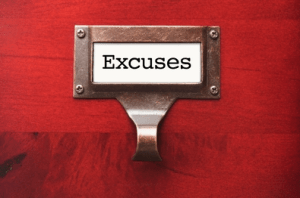
You can just sit tight. Stay comfy. And let the clock run out.
Or not.
The Biggies
Here are the excuses I hear most frequently from clients:
- It’s not the right time. “I’m too old, too young, too fat, too out of shape. I need to save up some more money; I need to wait for the promotion or partnership or bonus; I need to wait until the kids are out of school; I need to wait until my partner retires or I retire; or… .”
The truth is: It’s NEVER the right time. There are ALWAYS obstacles. There are ALWAYS hurdles to jump; there are ALWAYS challenges to overcome.
Now is the only time you have. Tomorrow is promised to do one. Goethe says, “What you can do, or dream you can do, begin it; Boldness has genius, power and magic in it.”
- I could never do that. I’m not brave enough; fast enough; strong enough; fit enough; smart enough; wealthy enough; creative enough; ___________ enough.
I could never do that. I’m not enough.
It’s one of our core insecurities as human beings: That I’m not enough.
It’s why we strive. It’s why we have the Sistine Chapel and rocket ships and the computer and smartphones… because we achieve, we strive… because we forever strive… for more. But the worry that we’re not enough also stops us short; holds us back.
But we’re already enough. All we need is within us already.
Everyone starts from the same place. A Mozart, a Picasso, a Marconi; and some even start from hugely disadvantaged places: a Lincoln, a Mandela, an Oprah.
No matter where you start, you have enough – you are enough – to go the distance.
- It will take too long. It will take 4 years for the degree; 7 years for the residency; 6 months to train for the race; a year to lose the weight; 3 to write the book; and who knows how long to find the ‘right one.’
So what? Who cares? The clock is ticking. The time will pass; whether you take the next step; or not.
It may well take you three years to launch your new business; but the three years will come and go even if you never launch.
Greatness takes time. The overnight success has spent many a sleepless overnight. And while maybe you won’t need 10,000 hours to sharpen your skills, you still need to put in the effort.
Opportunity often disguises itself as work; and work worth doing – legacy work, generational work, world-changing work – often takes a long time.
- It’s too big; too hard. It’s complicated, confusing, overwhelming, I can’t figure it out. I don’t know where to research it; I don’t know who to talk to; I don’t know what to do next.
Even highly successful, highly accomplished professionals labor with this excuse. The more expert we become in a particular area, the more daunting it is to venture into a new one. We like the familiarity of our own turf.
And even highly successful folks have ‘blind spots.’ They may excel in the business life and struggle in their relationships; their finances might be stellar and their health in the toilet.
Too, we live in a culture of overwhelm. There’s so much flying at us all the time. We suffer from information overload. We resist wanting to take in more.
But what we need to remember is that every journey starts with a single step. Every ultra I’ve run, every mountain I’ve climbed… no matter how long or how big gets finished by taking one step… and then the next.
We want to see the entire way. But we don’t need to. “Take the first step in faith,” Martin Luther King, Jr. said. “You don’t need to see the whole staircase; just take the first step.”
In every endeavor, every business venture, every fitness goal, every financial objective, every marketing campaign, every piece of research, it’s just one step at a time.
And the hardest one is the first one. So just take it!
- It’s too risky. I don’t want to fail; I don’t want to lose my job; I don’t want to lose money; I don’t want to get hurt in another relationship; I don’t want to get injured. It’s too dangerous.
This is the most pernicious excuse of all because it seems to make so much sense. Why take unnecessary risks… why put yourself in harm’s way?
Guess what? Life is dangerous. None of us gets out alive.
I have a buddy who has been on Mt. Everest twice; summitted once. He shattered his leg cleaning out the leaves from the gutters on his one-story house.
We like to believe in stability; in constancy. But the only thing that is constant, the only sure thing is that things will change.
Businesses collapse, partnerships fail, marriages come unraveled, layoffs happen, people get sick, markets crash. And as much as we like to maintain an illusion of control, we really don’t have very much at all.
Our comfort zones are called comfort zones because, well, they’re pretty damn comfy. But what’s true is that the magic happens just beyond. Our greatest breakthroughs… our very best lives… are just outside that place of comfort. Life rewards those who risk.
What’s Next?
So excuses are good; in fact, they’re great… if you want to stay stuck. Not so much if you want a big life. The stories we tell ourselves are just that: stories. It’s as easy to make up a small story as it is a grand one.
Grand is better.
What are your favorite go-to excuses? And what will you do now?
Doing It On Purpose
We shall never cease from exploration
And the end of all our exploring
Will be to arrive where we started
And know the place for the first time.— T.S. Eliot
I spent years; decades even.
I conferred with priests and ministers.
I consulted with counselors and therapists.
I sought out spiritual directors and shamans and energy healers.
I even hired a high priced consultant.
I was looking for my “purpose.”
I’ve discovered that I wasn’t alone.
I’ve come across lots of folks in the course of my coaching practice lately who are searching for their “purpose.” Folks from all walks of life; between jobs; coming out of dissolving marriages (and in happy ones); looking for the next step (or the first one); weary of their professions (or just ready for a change); certain that there is something “more,” but without a clue as to what that “more” might be.
They’re searching for their purpose because, for many, finding it really does matter. Because living day to day with a sense of purpose is important. Because, ultimately, we all want to make a difference with our lives; we want to make an impact; we want to leave the world a better place.
Purpose is a sense of mission, a vocation, a calling; a grand arc. More than a job or a role, it’s a sense of wholeness that weaves the pieces of our lives together.
The act of searching, though, can become a distraction; an excuse; a reason not to get our hands dirty, to buckle down and do the work. Searching for our purpose sounds important. And if we’re doing something as important as searching for our purpose, like a Holy Grail, how could we possibly have time to find the job, get the degree, launch the product, write the book, paint the picture or compose the song? Those are things you do after you’ve found your purpose! I should know! I’ve engaged in my fair share of circle jerking purpose searching.
“So how do you find your purpose? people ask.
I’ve discovered that it doesn’t have to be rocket surgery.
What excites you? What lights you up? What quickens your heart? What draws you like a moth to a flame? Where do you lose yourself in time? What have you always wanted to do? What brings you joy? What would you do, even if you weren’t getting paid to do it?
Sometimes we think that “doing” our purpose has to be hard; or that working at our purpose will require toil and sacrifice. But just the opposite is true.
Ask yourself instead: what makes you happy, what’s fun? In fact, ask yourself what would be too much fun to do? That likely will point you in the right direction of your purpose.
But, ultimately, remember this. We really don’t have the time to search for yetis or lost cities. The clock is running. And every second counts.
Just get busy. Purpose has a way of finding you.
Purpose is about discovering what has been within you all along.
It’s about loving deeply and serving freely; it’s about sharing the gifts that only you can share with the world.
Likely, your purpose is close at hand; right here; right now; right where you are. Doing the work you are doing in this very moment.
Don’t miss it.
______________________________________________
This is an encore of a post first published on September 12, 2014.
Be A Control Freak
Ok people, it’s done.
Summer’s over. The vacation’s behind you. No more lazy lunches. No more casual Fridays.
It’s time to put away the Dockers… and the swimmies. It’s time to get back to it.
September’s here. Time to get busy; time to get serious.
No more leisure, no more playtime.
It’s time for work.
Uhhh, wait a minute: I object. I don’t want to give up playtime!
It is a busy time of year. But perhaps we can take some of summer with us?
In summer, it seems, time is more expansive; the rules more flexible; the boundaries softer.
And then September comes and – maybe it’s a holdover from going back to school – it seems like the time for fun is over.
We move back into our busy lives, our schedules chock full, shuttling around the kids, out to soccer games and swim practices, with evening meetings, volunteer activities and board commitments.
Many of my coaching clients feel like they’re moving back into the forest fire armed only with their squirt guns; their lives turned into an out-of-control carnival game of whack-a-mole. Reacting endlessly, and breathlessly, to the urgent.
Never really getting to what is really, truly the important in their lives.
And summer slips silently into the rear view mirror with perhaps some vague hope for respite and reprieve on some distant unencumbered weekend… or maybe in February on that “vacation.”
There is a different way.
But it requires that you become a control freak.
That’s right, a control freak: someone who takes control of their lives!
No one else is gonna do it for you. You’ve gotta do it for yourself.
And this means that you need a bit of courage and audacity.
I know. I live it too. Bombarded by unceasing demands and expectations in every area of our lives. Inundated by inputs. Juggling multiple modalities of communication. Over committed and suffused with the anxiety of dropping the ball.
But here’s the truth: the in-box will always be full. None of us will ever get it all done. If you died tomorrow, you’d be replaced.
So why not pay attention to what truly matters?
People ask me how it is that I take so much time away traveling and adventuring. The answer: it’s a choice.
Last year, I took 13 weeks off. There were no disasters. No one missed me. The world went on.
And, damn, it was fun.
So here are some practices to consider before September gets too crazy:
- Decide what really, really matters to you. Spend time on that. Get rid of the rest.
- Get really good at saying no; if you find yourself saying you “should” do something, you probably shouldn’t.
- Carve out time for yourself – every single day. No one else is going to do it for you.
- Get up an hour early and enjoy the quiet. Use it to read and write and meditate and create.
- Plan your weeks; and plan each day; actually schedule in the time for the things that matter most to you.
- Turn off the TV at night and focus on the life you really want.
Here’s the scoop: at the end of our lives, no one is going to wish they spent more time in the office, billed more hours, sold more product, sat on more boards, went to more PTO meetings, or volunteered for more committees. It won’t matter whether you went to one more network group, whether your Facebook status was up to date, or whether you were well LinkedIn. What will matter will be the experiences you have had, the love you have shared, the lives you have touched.

What will matter will be whether you showed up in each and every moment to know the fullness and the joy of your life.
What will matter is whether you have lived without regret.
For that to happen, you’ll need to become a control freak.
___________________________________________________
This is an encore of a piece first published on September 6, 2012
Labor of Love
It’s Labor Day weekend in the United States: A celebration of work and workers; an opportunity to honor labor; the chance to celebrate the fulfillment of our effort.
Or perhaps, more realistically, an escape from tedium; a long weekend away from the insanity of the office; with a beer… or two; and burgers and dogs on the grill.
Because, you see, nearly 80% of folks are unfulfilled in their work. (More than 90% among my lawyer colleagues.) Employee engagement worldwide, that is a worker’s investment in his or her employer’s vision and mission, stands at 13%, meaning 87% of folks couldn’t really give a damn about what their company is trying to achieve. (And, by the way, employers beware: engagement is correlated directly with your bottom line.)
Which is terrible: Because our work is the highest expression of who we are in the world. Our work is the opportunity to serve in the world; to share with the world those gifts and talents that are uniquely ours to share.
Our work takes up the majority of our waking hours. It takes us away from our homes and our families. It requires our attentions and focus; our blood, sweat and tears. And at the end of the day, if it is devoid of meaning, we are left empty and depleted and despairing.
Our work is not the entirety of our being; and yet it is a huge part of who we are. 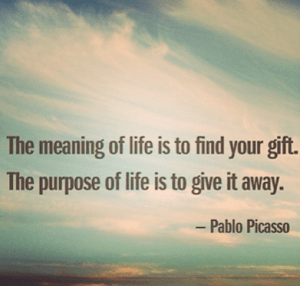
“Isn’t work supposed to be a grind?” my young career-coaching client asked.
“No!” I yelled into the phone. “It’s not.”
It’s supposed to be rich and full and joyous. Not without stress or worry; not without effort. But filled with meaning and purpose and deep satisfaction.
Your work should be fun; your work should make you happy.
Steve Jobs said, “For the past 33 years, I have looked in the mirror every morning and asked myself: “If today were the last day of my life, would I want to do what I am about to do today?” And whenever the answer has been “No” for too many days in a row, I know I need to change something… .”
If you find yourself filled with dread on Sunday night, then what you’re doing isn’t working. If you’re not waking up most days excited and on fire about your work, then you need to do something different.
Because when you’re in the flow, when you lose track of time, when your Monday feels as awesome as your Friday… that’s when you know you have the work and life you love. You deserve that; the world deserves that.
Because your work should be a Labor of Love.
Happy Labor Day.
DOWNLOAD your FREE BOOK!
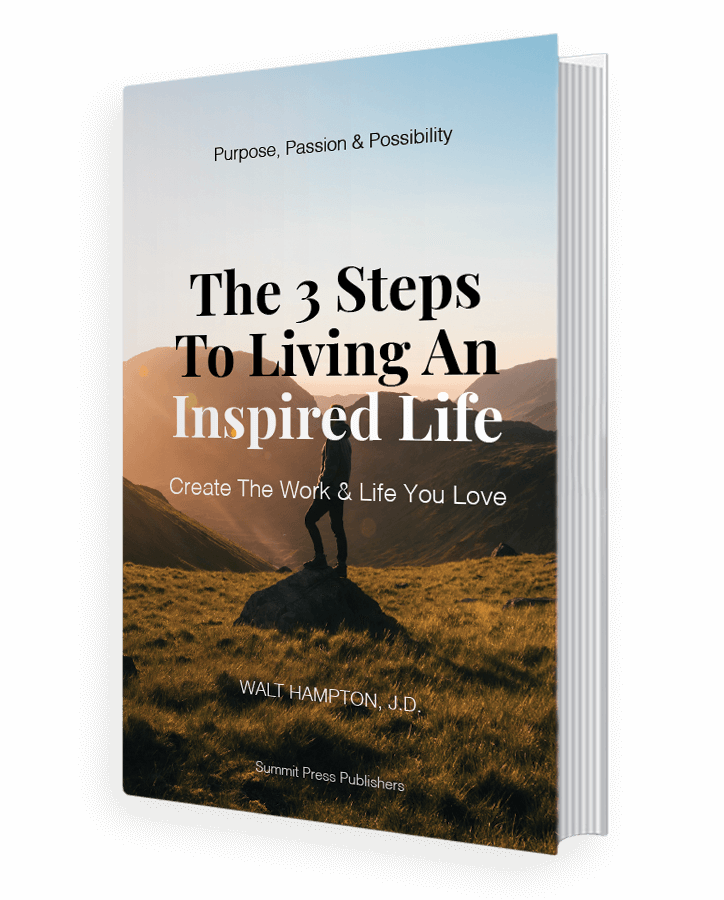
DOWNLOAD Your Free E-Book NOW! Click Below And Get Going!
Click below for your copy of Journeys!
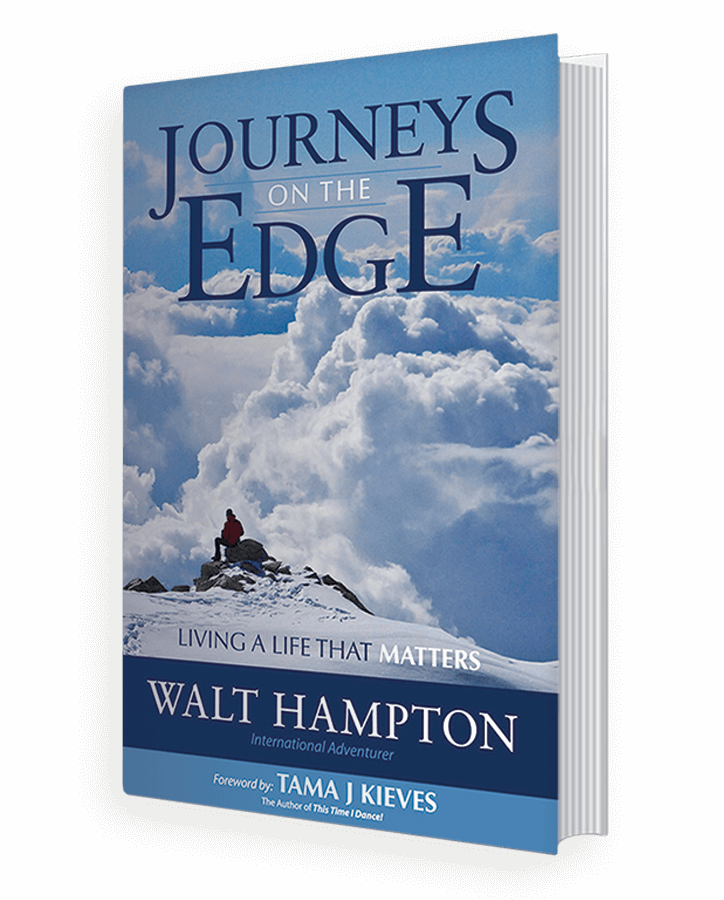
You’ll Get A Signed Copy!
Click on the button for your copy of my brand new book “The power principles of time mastery!”
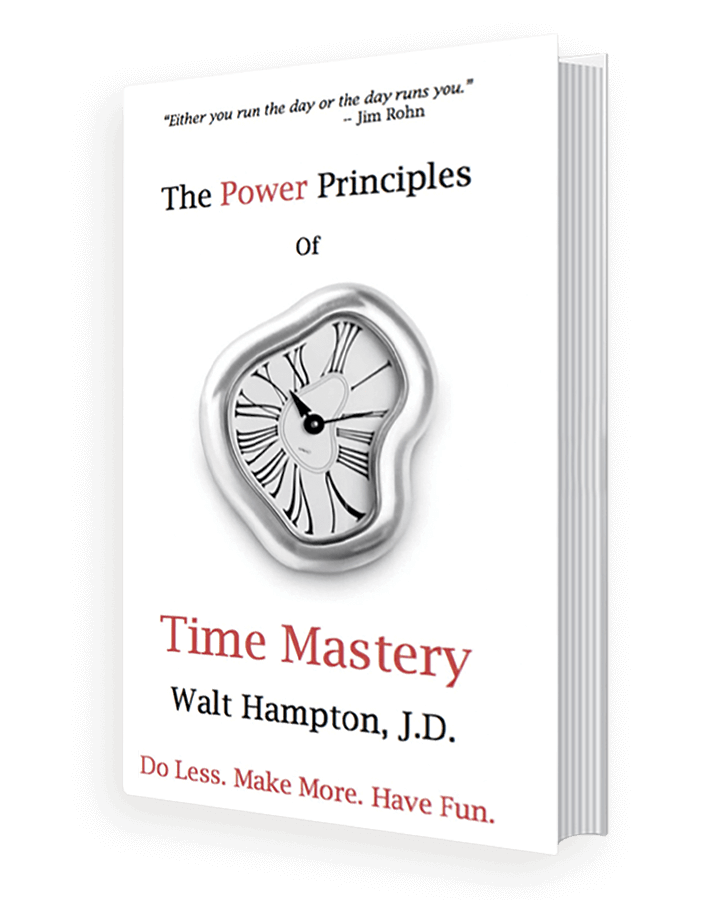
You’ll Get A Signed Copy!
Categories
Adventure
Finding The Way
Journeys
Leadership
Success
Ultra Training

